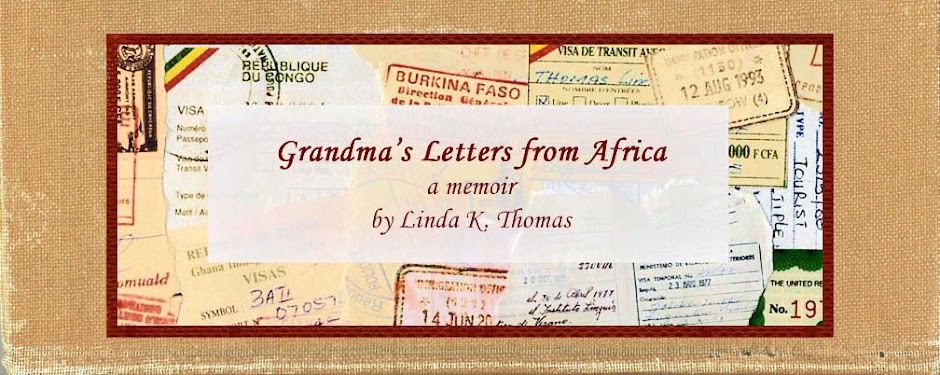I’m still
trying to bring down The Elephant in the Room.
“Sometimes
people and things can become too important to us. We grip them with closed
fists and white knuckles,” Chuck Swindoll writes, “and God has to pry open our
fingers to loosen our hold. Perhaps that’s how it was between Abraham and
Isaac.” (Abraham, The Friend of God)
Swindoll
also writes:
“There are
times when we look up full-hearted and prayerfully say, “O, Lord, in this
crisp, clear, beautiful moment, You have everything that I own. You have all of
me. There is nothing, nothing that I hold back.”
“It’s
amazing how soon after those times of commitment God seems to require something sacred
in our lives that puts us to the test.”
I know
what he means. In a recent post, and in Chapter 2 of Grandma’s Letters from Africa I
wrote of my grief over God’s request to leave my kids (and future grandkids)
and move to Africa—and yet . . .
. . . And
yet, I thought of the times I had felt God’s tug, and the accompanying pain in
my heart, while I sang the words—sincerely, I thought—“Love so amazing, so
divine, demands my soul, my life my all.” (When I Survey the Wondrous Cross,
Isaac Watts and Lowell Mason)
Had I
really meant those words?
My all? Even
my children?
While God
waited for my answer, I thought about the summer of my 15th year when our youth
director challenged us to commit our lives one hundred percent to God. A few
kids went forward but I remained in my chair, weighing what that commitment
might entail.
I
recognized I could neither see into the future nor fully comprehend God’s ways,
and yet, after a few minutes of intense thought and prayer, I stood and walked
forward. I really meant it—at the time.
And now
God was offering me an opportunity to see if I still really meant it.
Though I
didn’t understand it at the time, God was offering me a gift, offering to bring
my faith, trust, and love for Him to a higher, deeper, broader level.
Accepting
His gift, however, meant I had to sort through my entangled loyalties.
Recently I
ran across notes I took while listening to Chuck Swindoll’s radio program around that
time:
“God might
be saying, ‘I want the Isaac of your life, without reservation, and I will show
you step by step why I want your Isaac. You struggle because you’re unwilling
to give God something you cherish. God wants first place in your life so He can
arrange it the way He wants and so that you may be supremely happy.”
That “supremely
happy” Chuck referenced has nothing to do with worldly happiness, material
possessions, status, a guaranteed income, a comfortable life, an easy life, or
even safety from dangers.
It has
everything to do with the happiness that comes from letting God have first
place in our lives—as much as we are humanly able.
We cannot love Him perfectly,
we cannot give Him first place in our lives perfectly,
but God knows that we’re mere humans
and is quick to extend us His mercy and grace.
He’s looking not for perfect people,
but for people after His own heart.
(Click on Becoming A Man or Woman After God’s Own Heart;
see also 1 Samuel 13:14 and Acts 13:22.)
More on
this next week. We’ve almost wrestled that elephant to the ground!






